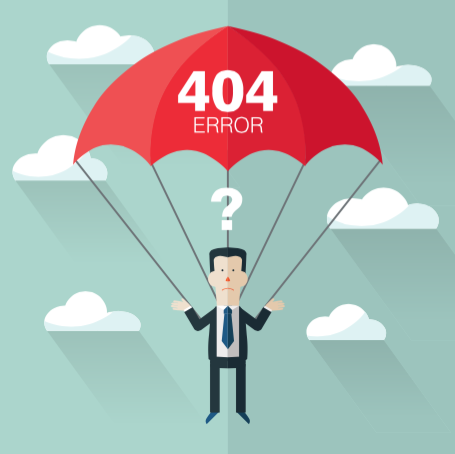how 404s and broken links destroy your seo

The web is an ever changing environment and search engines understand this, in fact, 404s are a perfectly normal part of the web. Domains expire, websites are abandoned, incorrect URLs are used and websites are restructured. New content is created and old is discarded.
However, if your site has numerous expired/deleted pages and external links point to these url’s on your page, both your search engine ranking and more importantly, your website user-experience will suffer.
what is an http 404 not found error?
When a user types in a specific url and/or clicks on an external referral link and pointed to a page that cannot be found by the server. This is a standard response code indicating that the client was able to communicate with given server, but the server could not find what was requested.
what causes http 404 not found errors?
404 Errors are caused by broken links. How these broken links occur can vary.
- The page requested was removed
- The page requested was moved under a different url
- The URL was typed incorrectly
how do 404s and broken links affect your website’s seo?
One factor that goes into your Google ranking is the content on your webpages and how relevant that content is to search queries. Google bots crawl a website link-by-link to index content for future user searches. When these bots discover dead pages on your website, they’re stopped in their tracks and will not index these pages. Not only will your SEO suffer from the drop in indexed pages, but Google and other search engines will take note that the webpage owner is not concerned with maintaining good user-experience, ultimately resulting in a decline in traffic.
Having 404s on your website could also indirectly affect your SEO by seeing an increase in bounce rate and decrease in time-on-site metrics. When users come to your site and arrive on a dead page, they would, in almost every instance, exit your site and look for another source for the information they were searching for. If Google sees users leaving your page within seconds of arriving, it assumes the information on your page is not a relevant result, resulting in a lower page ranking on SERPs.
Blizzard [Press] recently tracked a website’s 286 keyword phrases before and after setting up about 100 301 redirects, fixing several dozen broken internal links, as well as fixed 1000 broken images. The results were staggering. “Within one week, from the 286 phrases tracked, the website moved up 1713 spots. That means, on average, each keyword phrase moved up 6 spots in the search results!!”
how do 404s and broken links affect your website’s user-experience?
An even greater concern should be placed over how human visitors react to 404 errors because more often than not, it will be harsher than any search engine. Website visitors welcomed by a 404 error, will bounce and move on to the next source for the information they were originally searching for. Think about your website visitors that hit a 404 error as a loss in potential leases; it hurts to think about a drop in revenue over a few broken links. This disruption in user-experience on your website will badly hurt your online-reputation and the brand will be viewed in a negative light.
Has your website recently lost a blog or restructured? Then you may have broken links littered across the web! LeaseLabs is here to help. Contact us today so we can get your website search engine optimized and back-on-track.

